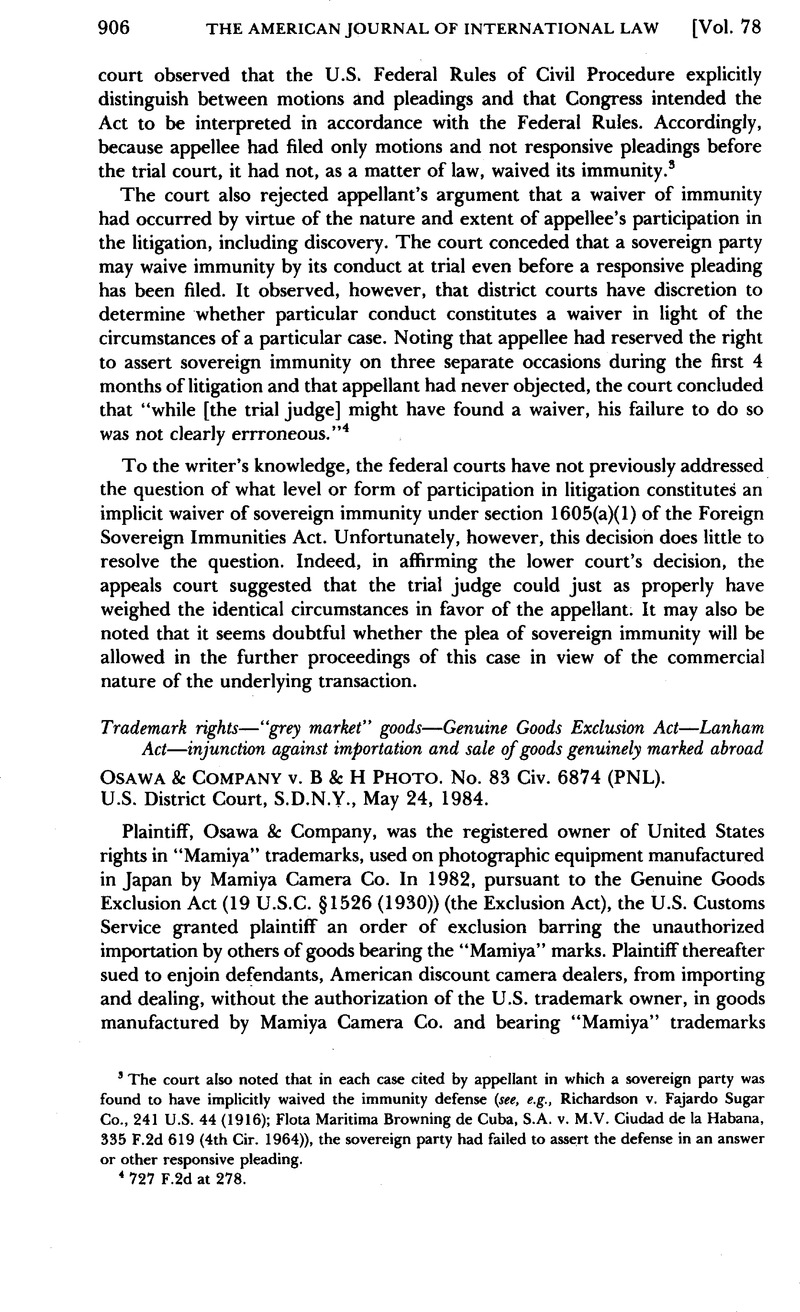No CrossRef data available.
Published online by Cambridge University Press: 16 May 2017

1 Plaintiff had previously brought a similar action against another dealer but lost its motion for summary judgment for failure to present sufficient evidence of irreparable harm. See Bell & Howell: Mamiya Co. v. Masel Supply Co., 719 F.2d 42 (2d Cir. 1983).
2 Approval of this principle in the United States was reflected both by the passage of the Exclusion and Lanham Acts and by the holding of the Supreme Court in A. Bourjois & Co. v. Katzel, 260 U.S. 689 (1923). "Territoriality" replaced the 19th century "universality" principle, under which goods manufactured and genuinely marked abroad could be imported into the United States for sale despite the fact that a domestic mark-holder had been granted the exclusive right to import the same product identically marked under American trademark laws. See, e.g., Fred Gretsch Mfg. Co. v. Schoening, 238 F. 780 (2d Cir. 1916).
3 The relevant Customs Service regulations appear at 19 C.F.R. §§133.21(c)(2), 133.2(d) and 133.12(d) (1983). The regulations deny exclusion in various circumstances, including where the foreign and domestic mark-holders are in a parent-subsidiary relationship or otherwise under common ownership or control.
4 See also Vivitar Corp. v. United States, No. 84-1-00067 (Ct. Int'l Trade Apr. 4, 1984) (order granting jurisdiction); Olympus Corp. v. United States, No. 84-0920 (E.D.N.Y. filed Mar. 15, 1984).